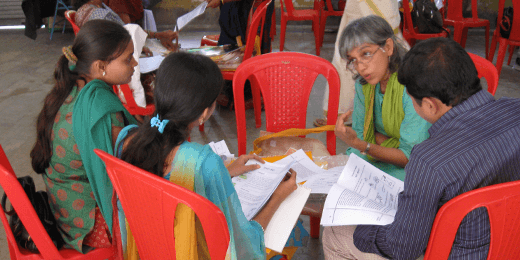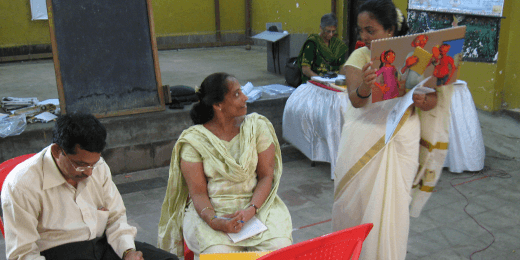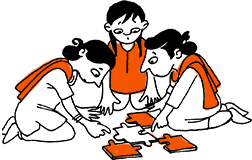The AVEHI ABACUS PROJECT believes in the centrality of the learner in the process of knowledge creation, and thus encourages active exchange between students, teachers and amongst peers. The sessions are structured to provide opportunities to understand and analyze content from the formal syllabus and link it to their real-life experiences.

We acknowledge that all of us learn in different ways and thus have organized diverse opportunities for communicating, processing and demonstrating what is learnt. Group work, debate, discussion and presentation are integral to the sessions as they help students understand and clarify new inputs and to develop concepts and world-views. An effectively guided discussion gives students an opportunity to present their own points of view as well as to listen to the views of others. Working in groups is seen as a way to promote teamwork and a spirit of co-operation and to discourage unhealthy competition. The idea is to learn to work with, and not against, one another. For democracy to survive learning to listen to and think about others is important even if we may not always be in agreement.
It is known that learning takes place through combination of experiences and thus the effort is to use complex learning strategies as well as simpler ones like stories and games particularly when new ideas are to be introduced or conveyed. Most sessions have a variety of interactive visual aids, such as flipcharts and posters. Different artists have created these diverse, distinct, appropriate visuals using varied styles to make the learning materials as attractive and communicative as possible. Getting the students to develop visual and spatial literacy, mature aesthetic sense and of course comment freely on their preferences and dislikes is also an essential component of the pedagogy.

Each student is given a Workbook containing worksheets, additional reading material, stories accompanying each Kit. The Worksheets aim at helping the students relate their classroom learning with other sources of knowledge outside school, to reflect on what they have learnt during the sessions, obtain inputs from family/community members/media, to conduct surveys and process the collected data. Through worksheets students can demonstrate their learning by writing or drawing or doing craft and poetry. Thus the workbooks aim at empowering the learner to validate what is learnt, make it contextual and create new knowledge. Each student’s workbook is a rich source of understanding their journey of learning.
For the teachers the sessions are not an exhaustive, rigid teaching resource but a springboard for discovery. The sources of knowledge are multiple – experiences from home and community, daily life and nature, our insights, books, films, news media, the Internet – all contribute to developing a view of the world. We hope that our teaching-learning resources can help in unraveling hidden links, expanding minds and finally, showing that with all our differences we can still live and learn together.

